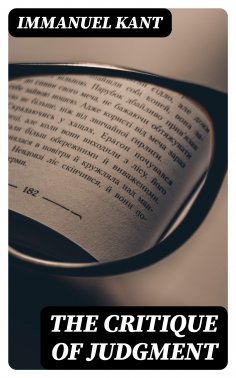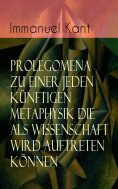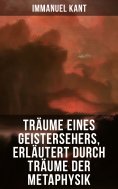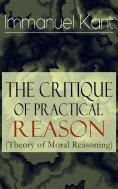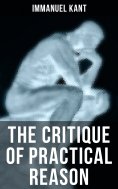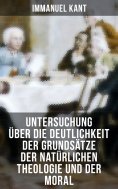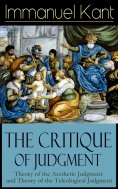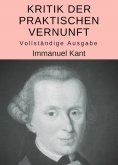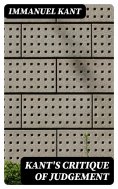The Critique of Judgment
Über das eBook
Immanuel Kant's 'The Critique of Judgment' is a foundational work in the realms of aesthetics and teleology. In this philosophical treatise, Kant discusses the role of judgment in matters of art and beauty, proposing the concept of 'aesthetic judgment' as a unique form of cognitive experience. Through rigorous analysis and reasoning, Kant explores the subjective nature of beauty and the universal principles that underlie our aesthetic perceptions. Written in a clear and systematic style, this book remains a significant contribution to the fields of aesthetics and philosophical inquiry. Kant's insights on the nature of judgment and beauty continue to provoke scholarly discussions and debates in the academic community. Immanuel Kant, a renowned German philosopher of the 18th century, was deeply influenced by the works of earlier thinkers such as Plato and Aristotle. His intellectual curiosity and dedication to reason led him to explore fundamental questions about human cognition and morality. 'The Critique of Judgment' is a must-read for anyone interested in aesthetics, philosophy, or the history of ideas.
Über den Autor
Immanuel Kant, born April 22, 1724, in Königsberg, then part of Prussia, is one of the most influential philosophers in the history of Western philosophy. His comprehensive and systematic work in epistemology (the theory of knowledge), ethics, and aesthetics greatly influenced all subsequent philosophy, especially the various schools of Kantianism and idealism. Kant's endeavor to set out to the limits of metaphysics and understanding led to what is often considered his greatest work, 'The Critique of Pure Reason' (1781/1787), establishing his reputation as a foremost thinker. His 'The Critique of Practical Reason' (1788) is central in his moral philosophy, whilst 'The Critique of Judgment' (1790), the third of his seminal triad, delves into aesthetics and teleology. It bridges the gap between the natural world and the moral world, providing a comprehensive framework for his aesthetic theory, notably his analyses of beauty and the sublime. Kant's critical style of philosophy was aimed at solving what he perceived as shortcomings of past doctrines, setting the stage for many philosophical debates that would follow. He passed away on February 12, 1804, in Königsberg, where he had lived all his life, but his writings continue to resonate and shape philosophical discussion today.
Produkt Details
Verlag: DigiCat
Genre: Sprache - Englisch
Sprache: English
Umfang: 423 Seiten
Größe: 483,5 KB
ISBN: 8596547008385
Veröffentlichung: 17. Mai 2022
